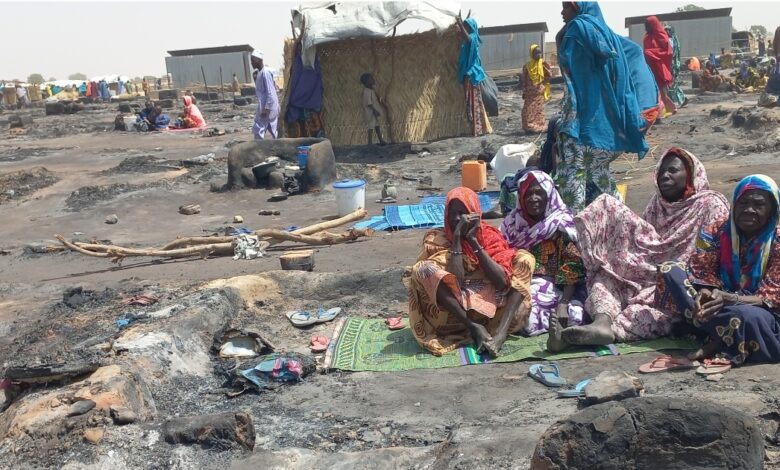UN Secretary-General Unveils Agenda To Curb Rise Of Internal Displacement
UN secretary-general proffers a 3-point solution plan to address the global spike of people being displaced within their own countries due to conflict, disasters and the impact of climate change.

The United Nations Secretary-General, António Guterres, on Monday, June 27, unveiled an action agenda on global displacement to halt the unprecedented rise in the number of displaced people within their own countries.
Guterres said, globally, the number of internally displaced persons (IDPs) has doubled in recent years, “with women, children and marginalised groups often facing the greatest impacts.”
“Millions of people have remained trapped in displacement for years, some even for decades,” the UNSG said while unveiling his ‘action agenda on displacement’.
A statement by the UN chief shared with HumAngle noted the Action Agenda was necessitated by the report of the Secretary-General’s High-Level Panel on Internal Displacement.’
Guterres had said the panel report “challenged us not to accept the status quo and to step up collective action on internal displacement.”
The Action Agenda is a follow-up to the Secretary-General’s vision “to better resolve, prevent and address internal displacement crises.”
“The plight of internally displaced persons is more than a humanitarian issue. It takes an integrated approach – combining development, peacebuilding, human rights, climate action and disaster risk reduction efforts,” Guterres said.
The Action Agenda on Internal Displacement, according to the UN, has three overarching goals: “Help IDPs find a durable solution to their displacement, better prevent new displacement crises from emerging, and ensure those facing displacements receive effective protection and assistance.”
The UN said these three goals are “inextricably linked”. As such, it acknowledges the fact that “no solution is sustainable if another crisis is looming”.
“No assistance would be sufficient if underlying drivers of displacement remain unresolved. And prevention cannot succeed if past crises have not been addressed.”
The UN maintained that with over 59 million people recorded to have been displaced at the end of 2021, “more people are currently displaced within their own countries than ever recorded before due to conflict, violence, disasters and the impact of climate change.”
Nigeria, especially in the northern region, is currently recording a rise in internal displacement due to the Boko Haram insurgency, clashes between farmers and herders, banditry, kidnapping and other related violence from non-state actors.
Before 2021, the northeast states of Borno, Adamawa and Yobe had the most significant internal displacement cases. But this record may have been altered by the rising instances of violence occasioned mainly by activities of terrorists in Northwest Nigeria.
Support Our Journalism
There are millions of ordinary people affected by conflict in Africa whose stories are missing in the mainstream media. HumAngle is determined to tell those challenging and under-reported stories, hoping that the people impacted by these conflicts will find the safety and security they deserve.
To ensure that we continue to provide public service coverage, we have a small favour to ask you. We want you to be part of our journalistic endeavour by contributing a token to us.
Your donation will further promote a robust, free, and independent media.
Donate HereStay Closer To The Stories That Matter




